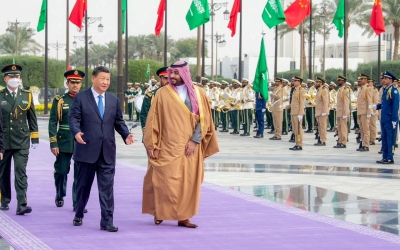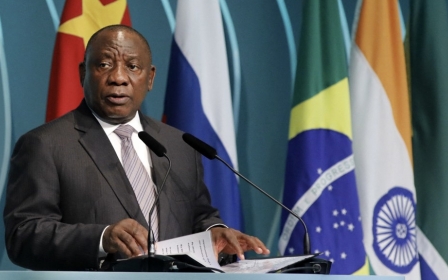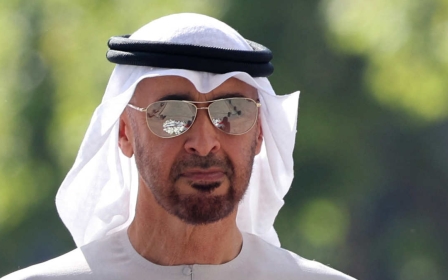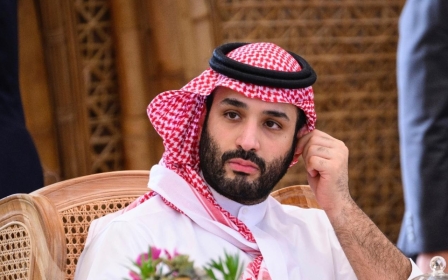Brics invites Saudi Arabia, Egypt, UAE and Iran to join
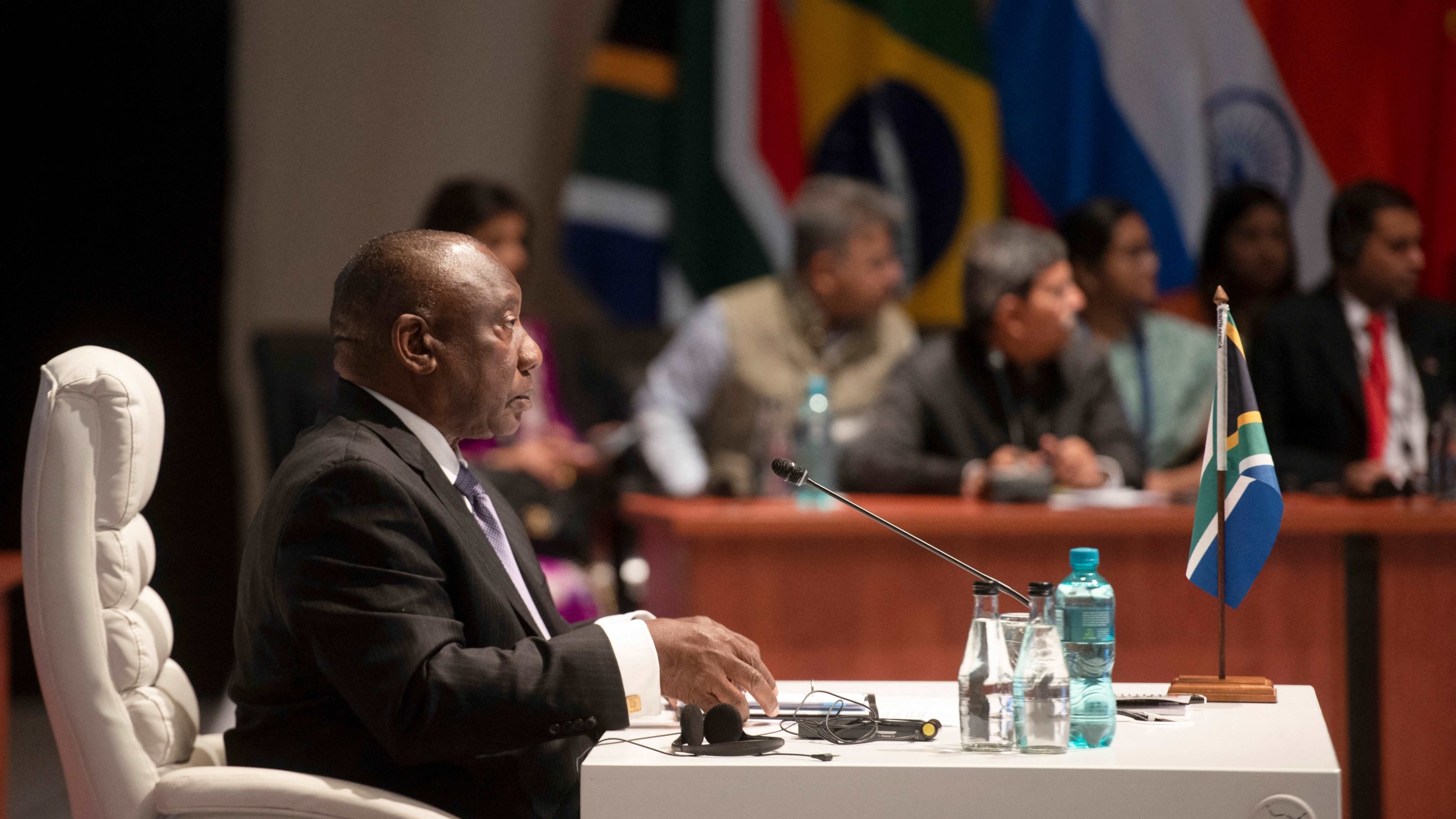
South Africa's President Cyril Ramaphosa has invited four Middle Eastern states to join the Brics bloc of emerging economies as part of a move that would double the membership of the organisation.
The announcement by Ramaphosa that Saudi Arabia, Egypt, Iran, and the UAE had been invited to join comes amid a summit of current member states in the city of Johannesburg in South Africa.
Brics is an anagram of its founder states - Brazil, Russia, India, China, and South Africa - all countries that are expected to dominate the world economy in the coming decades.
Writing on social media platform X, formerly known as Twitter, Ramaphosa said: "BRICS is a diverse group of nations. It is an equal partnership of countries that have differing views but a shared vision for a better world.
"As the five #BRICS members, we have reached agreement on the guiding principles, standards, criteria and procedures of the #BRICS expansion process."
New MEE newsletter: Jerusalem Dispatch
Sign up to get the latest insights and analysis on Israel-Palestine, alongside Turkey Unpacked and other MEE newsletters
If the invitees agree, they will become full Brics members on 1 January 2024, the South African leader added.
Currently, Brics countries account for 40 percent of the world's population and a quarter of its economic output.
The purported aim of the bloc is to provide a counter-balance to the US-led world economic order and to create a global economic system that is multilateral and more independent from policy decisions made in the US.
More than 15 countries have expressed an interest in joining the organisation, with Turkey, Algeria, and Tunisia among Middle Eastern states said to be interested in becoming members.
Speaking on Thursday, following the announcement of Egypt's impending membership, its president, Abdel Fattah el-Sisi said his country would work towards raising "the voice of countries in the south".
"I appreciate Egypt being invited to join Brics and look forward to coordinating with the group to achieve its goals in supporting economic cooperation," Sisi added in comments reported by the Reuters news agency.
MENA membership
South African media outlets reported that the Saudi monarch had "allegedly" arrived in the country on Wednesday to attend the closing of the summit.
It is not clear whether that means Crown Prince Mohammed bin Salman, who handles the day-to-day running of the kingdom, or his elderly father King Salman.
What is known for sure is that the summit was attended by Saudi Foreign Minister Faisal bin Farhan.
Saudi membership would be a big boost for the Brics bloc with Riyadh's GDP topping a trillion dollars according to World Bank data, making it the largest economy in the Middle East.
As the world's largest oil producer, Saudi Arabia has traditionally enjoyed close economic and security ties with Washington.
The decades-long quid pro quo between the two countries has seen US security guarantees exchanged for stability in global oil markets.
Relations between the states have deteriorated in recent years following the murder of journalist Jamal Khashoggi and the US reaction to his killing.
The CIA concluded that the Saudi crown prince was responsible for the death of the Washington Post and Middle East Eye columnist.
Riyadh's diplomatic course since the killing has been more independent and there have been signs of closer relations with China, Washington's main economic and military rival.
This was evidenced by Beijing's role in mediating a reconciliation between Saudi Arabia and its regional rival Iran earlier this year.
Middle East Eye delivers independent and unrivalled coverage and analysis of the Middle East, North Africa and beyond. To learn more about republishing this content and the associated fees, please fill out this form. More about MEE can be found here.


